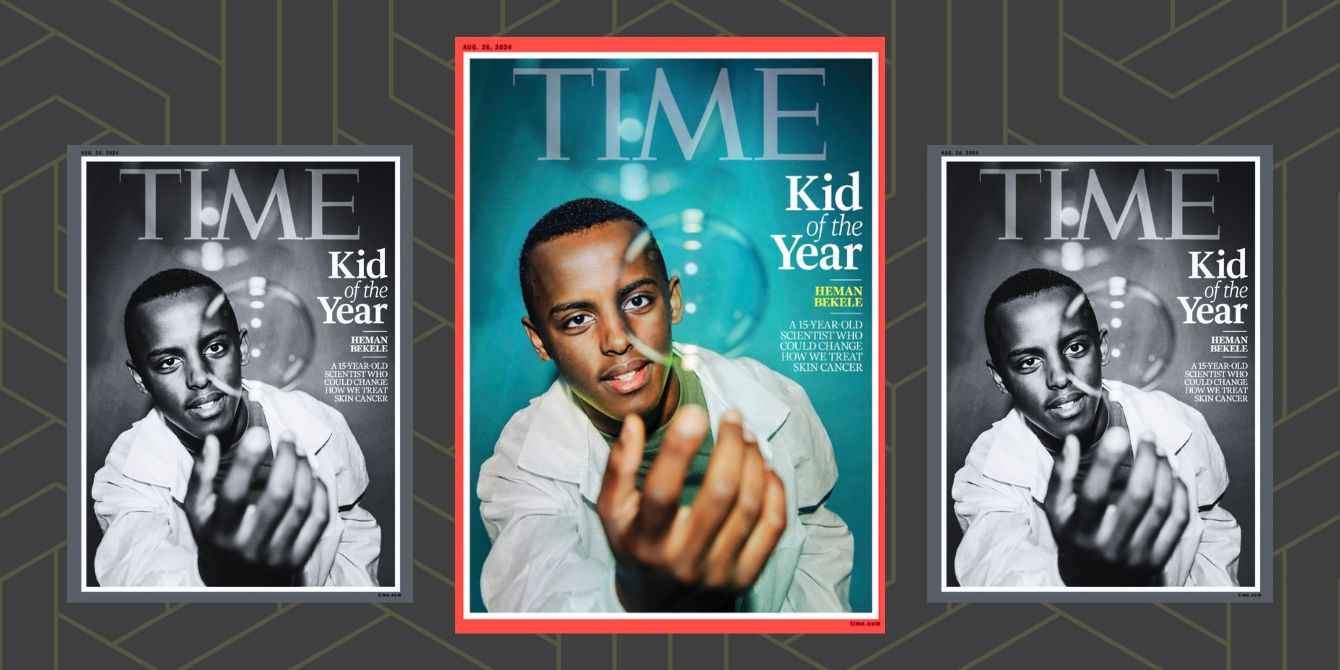Time magazine’s “Kid of the Year” is far from a typical high school student. 15-year-old Heman Bekele won the grand prize in last year’s 3M Young Scientist’s Challenge after coming up with an idea for a bar of soap that may be able to help treat and prevent skin cancer.
Bekele came up with the idea after spending his childhood in Ethiopia, before moving to the U.S. when he was 4.
“Growing up in Ethiopia, I always thought people were always getting hit by the hot sun working outside. I didn’t think much of it when I was really little, but as I grew up I realized how big of an issue [skin cancer] really is. Not only in Ethiopia but everywhere around the world,” he told Time. “And when [people] do end up getting skin cancer, it’s crazy expensive [to treat] and not affordable in the slightest. Skin cancer does have cures and skin cancer is treatable in most cases. However, the average price of skin cancer treatment globally is almost $40,000. When I heard those really shocking statistics it really inspired me to create a more affordable and accessible solution. I started doing experiments and working on different things, then that turned into my bar of soap as a project.”
First, Bekele learned the soap-making process, which he was able to do safely in his family’s home with basic materials. When it came time to start incorporating cancer-fight properties, he reached out to scientists at the University of Virginia and Georgetown, who were eager to help—especially his now-mentor, Deborah Isabelle.
“She helped organize and structure my thoughts and she has so much experience in the field of R&D. I definitely couldn’t have couldn’t have done this all by myself,” Bekele said.
Together, they came up with MTS, or Melanoma Treating Soap, a “compound-based bar of soap and it’s charged with different cancer-fighting chemicals,” according to Bekele. The main active ingredient is Imidazoquinoline, a drug typically used as an antifungal and for fighting acne, but that has recently shown promise against certain skin cancers.
“Using that drug, as well as other components like a nanolipid-based particle transporter that [delivered the] drug throughout the skin, was actually a really effective solution for some cancer,” Bekele said. The soap also has exfoliant properties and biodegradable packaging. So far, it’s performed well in what’s called digital molecular testing, which is based on computer models, but Bekele has goals to get it cleared for human testing through the FDA.
“I have a really basic 5-year plan mapped out including acquiring FDA certification, conducting human testing and making sure that this all works,” he said. “But then by 2028, I hope to turn this passion project into a nonprofit organization where I can provide equitable and accessible skin cancer treatment to as many people as possible, because honestly at the end of the day, that is what this project is all about.”

